US seeks to draw support from allies for possible sanctions on China over Ukraine war: Report
The United States is consulting with its allies on the possibility of imposing new sanctions against China if Beijing supplies military equipment to Russia for the war in Ukraine, a report says.
Washington is currently sounding out its close allies regarding the possibility of applying fresh punitive measures against Beijing providing that it provides military support to Moscow for its war in Ukraine, Reuters said in an exclusive report, citing four unnamed US officials and other sources.
According to the sources, the White House is still at the preliminary stage of its consultations with allies aimed at drumming up support from a range of countries, particularly those in the wealthy Group of 7 (G7), in order to coordinate support for any possible restrictions against Beijing.
However, it is not yet clear what specific sanctions Washington will propose.
The consultations come as US Secretary of State Antony Blinken again accused Beijing on Sunday of considering providing lethal support to Moscow ranging "from ammunition to the weapons themselves," a year after Moscow waged a war on the ex-Soviet republic.
The allegations, however, have drawn strong reaction from Beijing, which said Washington is in no position to make such claims. "It is the United States and not China that is endlessly shipping weapons to the battlefield," said Chinese Foreign Ministry spokesman Wang Wenbin on February 20.
"China's comprehensive collaborative partnership with Russia is based on the basis of non-alignment, non-confrontation and non-targeting of third parties, and is a matter within the sovereignty of two independent countries," Wang said at the time, emphasizing, "We will never accept the US pointing fingers at Sino-Russian relations or even coercing us."
Aides to US President Joe Biden have not yet publicly provided evidence to support such allegations against China, yet Washington and its allies have constantly warned China directly against arming Russia, including in meetings between Biden and his Chinese counterpart Xi Jinping as well as during an in-person meeting on February 18 between Blinken and Wang Yi, director of China's Central Commission for Foreign Affairs, on the sidelines of a global security conference in Munich.
According to the report by Reuters, the initial steps by the White House to counter China's alleged support for Russia have included informal outreach at the staff and diplomatic levels, including the Treasury Department.
"It's a distraction for China and a potential blow to their international relationships they do not need nor should they want," a White House National Security Council spokesperson said when asked about the consultations, adding that the war in Ukraine has made it difficult for China with Europe and others.
While a US official told Reuters that Washington was sharing intelligence with allies about the allegation against China, an official from a country consulted by the US told the news agency that they had only seen inadequate intelligence supporting the claim.
Last week, China issued a 12-point document for peace talks between Kiev and Moscow to end the war. Beijing's position, among other things, underscored respect for all countries' territorial integrity and sovereignty.
Ukrainian President Volodymyr Zelensky cautiously welcomed the peace plan but said it is only acceptable if it leads to the full withdrawal of Russian forces from Ukrainian lands. Western leaders, however, said they are not sure about the proposal and that they believed Beijing does not have enough international credibility to play a mediating role.
China's peace plan has also a bumpy road ahead in Russia as Moscow has said it will not give up the regions it has annexed so far from Ukraine.
Back in September last year, Russia annexed the four Ukrainian regions of Donetsk, Luhansk, Kherson, and Zaporizhzhia following referendums.
Ukraine and its Western allies denounced the move as illegal, calling the votes a "sham." However, Moscow named the regions as constituent subjects of the Russian Federation in a constitutional decree despite the fact that Russian forces have not yet managed to take the regions under their full control.
One of the sources told Reuters that the White House wanted to first raise the idea of coordinated sanctions and "take pulses" in case any shipments are spotted to Russia from China.
"On the G7 front, I think there is real awareness," a second source said, but added that detailed measures focused on China were not yet in place.
Russia invaded Ukraine on February 24, 2022 to "de-Nazify" the country and over the perceived threat of the ex-Soviet republic joining the US-led NATO. Kiev and its allies, however, say they were baseless pretexts for imperial ambitions.
Since the onset of the war, the United States and Ukraine's other allies have sent Kiev tens of billions of dollars' worth of weapons, including rocket systems, drones, armored vehicles, tanks, and communication systems.
Western countries have also imposed a slew of economic sanctions on Moscow. The Kremlin has said the sanctions and the Western military assistance will prolong the war.
A year into the war, Ukraine and its allies fear that possible supplies from China could tilt the conflict to the advantage of Russia, which they claim is running low on munitions.
Last month, in a G7 statement to mark the war's first anniversary, the US, without mentioning China by name, called on "third-countries" to "cease providing material support to Russia's war, or face severe costs."
Washington has already imposed fresh penalties on people and firms accused of assisting Russia evade sanctions. The measures included export curbs on companies in China and elsewhere that will prevent them from purchasing items, such as semiconductors.
"We've tried to signal very clearly, both in private in Munich, and then publicly, our concerns. We've talked about the implications and the consequences if they were to do so. And we also know that many of our like-minded partners share those concerns," Daniel Kritenbrink, the top American diplomat for East Asia, said during his address to the Congress earlier this week
According to Anthony Ruggiero, a sanctions expert under former US president Donald Trump, the White House should make China choose between access to the US financial system or helping Russia in its war in Ukraine.
IRGC intelligence forces capture agent linked to foreign espionage service
VIDEO | Palestinians in Yarmouk Camp cling to hope and determination
Israel preparing to stay in southern Lebanon after ceasefire: Report
Israeli pressure on Hamas ‘hardly helped’; swap deal necessary: Ex-Mossad chief
Far-right Israeli minister Ben-Gvir again storms al-Aqsa Mosque
Iran: Israel’s attack on journalists’ vehicle in Gaza amounts to ‘war crime’
VIDEO | Israel’s war spending
Palestine Action wins again


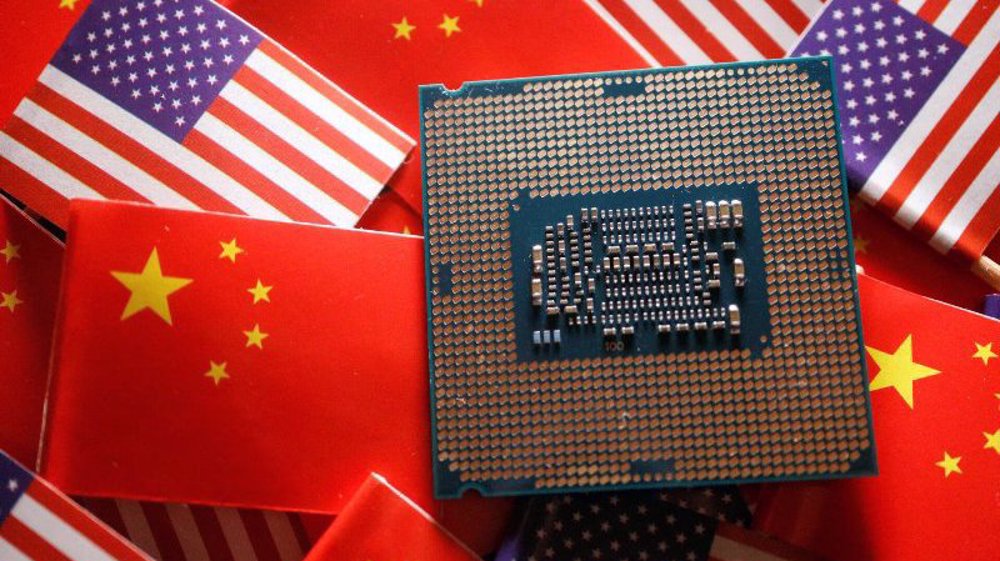
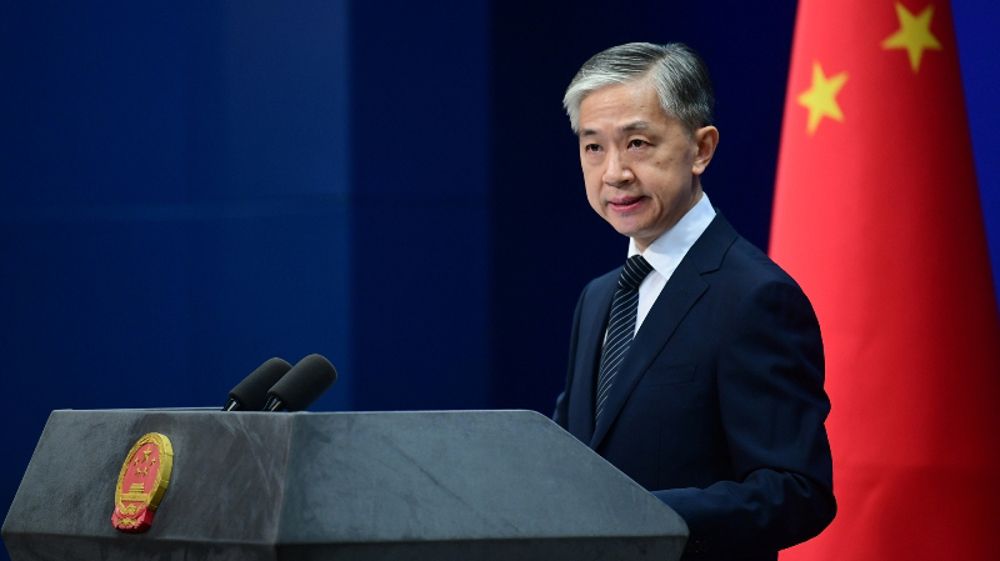
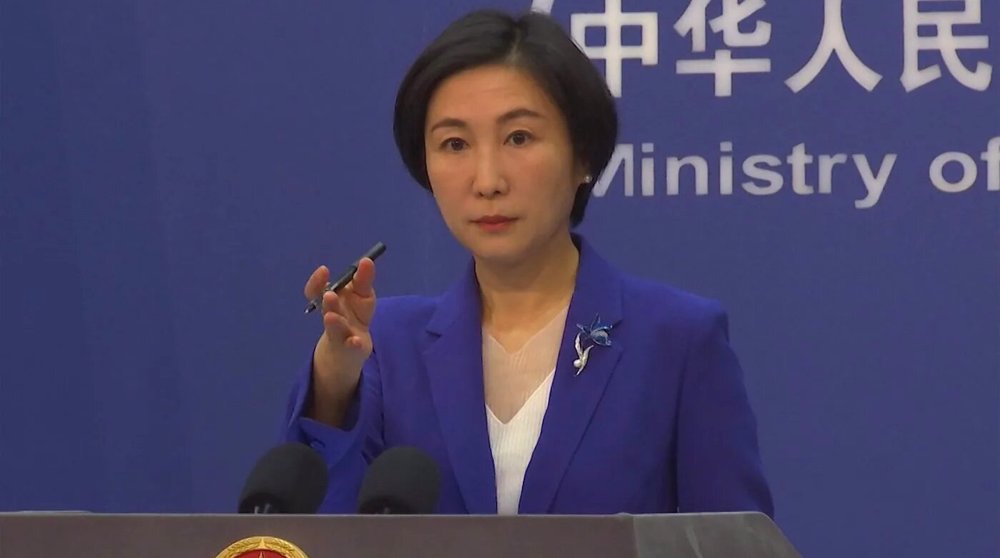
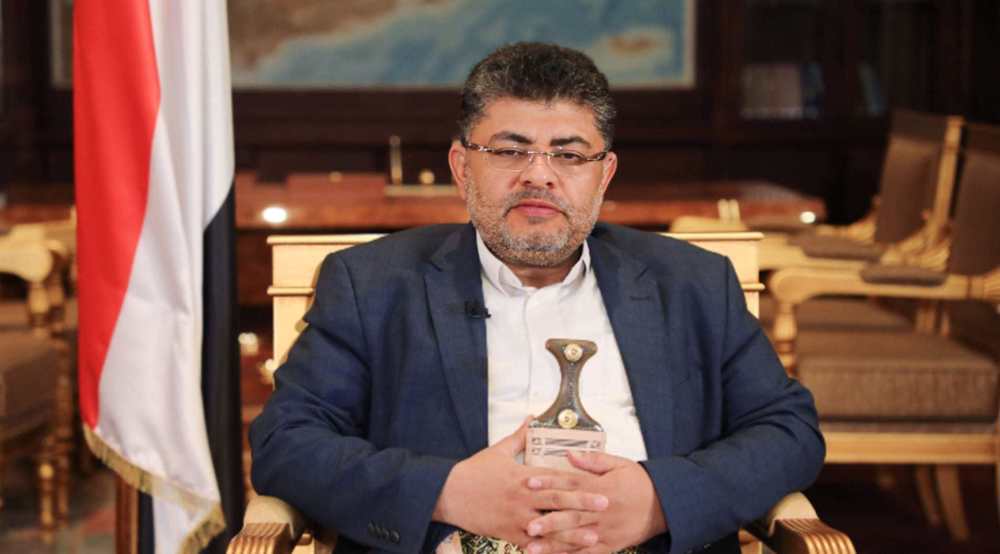
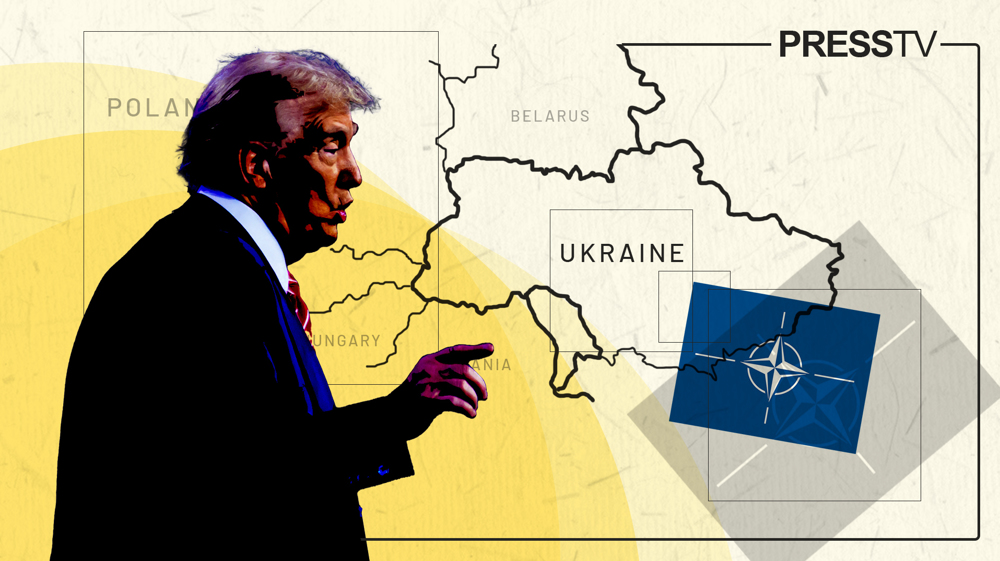





 This makes it easy to access the Press TV website
This makes it easy to access the Press TV website